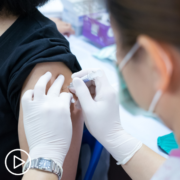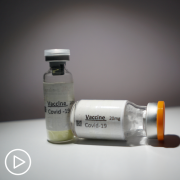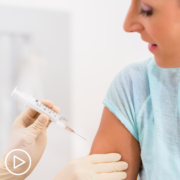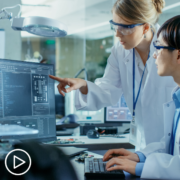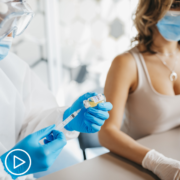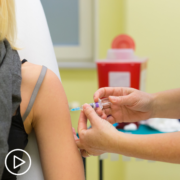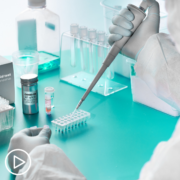What Information Is There for Those Hesitant About COVID-19 Vaccines? from Patient Empowerment Network on Vimeo.
For those cancer patients who have COVID-19 vaccine hesitancy, what information is there about vaccine development? Expert Dr. Shaji Kumar shares details about development and clinical trials of the COVID-19 vaccines – and the reasons why testing could be carried out at a rapid rate compared to other vaccines.
See More From the Best Care No Matter Where You Live Program
Related Programs:
Transcript:
Mary Leer:
Can you speak to those who might be hesitant about the speed of vaccine development around COVID. I’ve heard this often from other people saying, “Well, they develop this so quickly, how can we trust it?”
Dr. Shaji Kumar:
I think those concerns are quite valid, I think vaccines have always been a very controversial topic and not just COVID vaccination but even for childhood vaccinations. There have been long-standing concerns that some of those vaccinations may be responsible for some of the issues that we see in the children and even in the late adulthood. I think what we really want to get across is, again, taking that question apart, and there are multiple different aspects to it, one is the whole concept of how we created the vaccine so quickly, we kept telling everyone from the time that it started that it takes five to 10 years to develop a good vaccine, and now we have something in a year, so obviously that raises concerns amongst people. I think it’s just a testament to how far technology has come. In the past, we had to isolate the protein and use that protein to develop the immune response, and what has been really unique about the COVID situation has been the Pfizer vaccine and the Moderna vaccine, both of which uses a new technology called the mRNA-based technology. And this is something that has been developed over the past decade to decade-and-a-half, and I would say this is a platform that was perfect, just waiting for the right opportunity to come along.
And the COVID situation really presented that. And even though it was the speed with which this was developed, is just because the technology has come along so much and we can actually do that, and the second is how fast the clinical trials have been done, and I think that speaks to, again, the infrastructure that they have been developed over the years to rapidly develop and implement a clinical trial. So the clinical trials, both Pfizer and Moderna trials had 40 to 50,000 people enrolled in a quick phase and the community transmission that was happening at a very high rate. We could get these trials done in a very rapid manner, so the patients or the people who enrolled in this clinical trial the fact that they were not getting infected could be determined in a much, much faster fashion than what you would have done in the past with any of the other vaccines. So I think the technology is robust. The [COVID] trials are very well-conducted and the end point in terms of efficacy has been very well-determined or very accurately determined. And given the size of these trials and the number of people who have been a goal, I think we can feel fairly confident that the risk associated with this vaccine is pretty low, so you can argue that one of the risk of a particular side effect is only 1 in 80,000. So maybe to the 40,000 people enroll in the trial, they may not have adequate numbers of that and that was certainly a concern when they started vaccinating. And we just know a couple of days ago, there was a publication that looked at almost like 63 million vaccine doses that have been given, and overall the risk of vaccine related side effects have been very, very minimal.
But on the other hand, we all heard about what would happen with some of those vaccines and the blood clots, and I think that even though…yes, it is, as it is a risk. It is a very, very small risk. And the fact that you were able to identify them right away again, I think tells us that should there be rare side effects, you’re going to find it, and we are going to figure out the mechanics of why those side effects happen. And we’re going to figure out how to avoid those things.
So, I think the information flow is so fast and all the data related to vaccines and the side effects are being captured in a real-time fashion that you’d immediately be aware of side effects should that happen.

